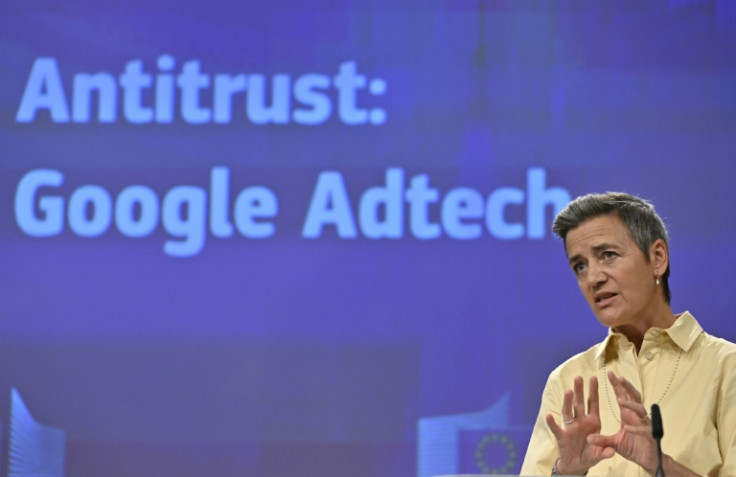EU Says Google Abused Dominant Positions In Online Ads

The European Commission accused Google on Wednesday of abusing its dominance of the online ad market and recommended the US company sell part of its ad services to ensure fair competition.
The EU executive invited Google to now respond to this preliminary finding, made after a two-year anti-trust probe, before a definitive finding was made.
If the commission maintains its view after that, it could levy a fine of up to 10 percent of Google's annual global revenues.
Google issued an immediate statement with its vice president for global ads, Dan Taylor, saying "we disagree" with the commission's announcement "and we will respond accordingly".
He stressed Google was determined to "creating value" for advertisers in a "highly competitive" market and said "the commission's investigation focuses on a narrow aspect of our advertising business".
Google is a subsidiary of US tech giant Alphabet, which reported worldwide revenues of $76 billion in the last three months of 2022.
Commission Vice President Margrethe Vestager, who spearheads the EU's anti-trust activities, said: "We are concerned that Google may have illegally distorted competition in the online advertising industry, also known as adtech."
She said the commission had not yet made a final conclusion in the case, and was awaiting Google's response.
"It is quite rare that we ask for a divestiture, and we have not asked for it yet," Vestager said.
The commission's preliminary view, though, was that divestiture was the only appropriate remedy, given that Google is "dominant in the buy-side, dominant in the sell-side" of the online ad market.
Specifically, the commission noted that Google not only provides digital tools to place online ads in the form of webpage banners, video, audio, images and text, but also acts as an intermediary for advertisers and publishers to get ads on computer and mobile screens.
For that, it has an ad exchange to match buyers and sellers, called AdX, as well as an ad server called DoubleClick, and tools to buy ads called Google Ads and DV 360.
In a statement, the European Commission said it "preliminarily finds that, since at least 2014, Google abused its dominant positions" by favouring AdX in ad buys via DoubleClick, Google Ads and DV 360.
That, it said, may have been "intentional conducts aimed at giving AdX a competitive advantage" that sidelined rival ad exchanges and allowed Google to charge higher fees in its adtech supply chain.
The commission's preliminary finding announced on Wednesday tracks closely with an anti-trust suit lodged against Google by the US government in January.
© Copyright AFP 2024. All rights reserved.







